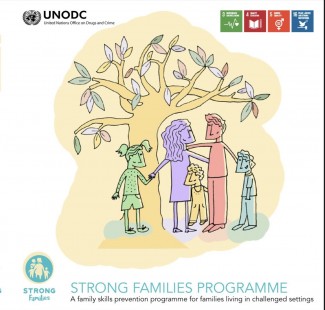Bridging the Gap between the Pressing Need for Family Skills Programmes in Humanitarian Settings and Implementation

Abstract
A supportive environment with nurturing caregivers is essential for the healthy development of children. For children who have been exposed to extreme stress, such as humanitarian contexts, the need for strong, healthy, nurturing caregiver relationships may assume even greater importance.
Much research has been building to position family skills interventions as a key tool in encouraging safe and supporting relationships between caregivers and children, thus preventing many problem behaviours and poor mental health.
While there is substantial evidence of the effectiveness of family skills interventions in high-income and stable contexts, evidence of interventions that have been tested in humanitarian and challenging settings, such as contexts of refugee and displacement, are far fewer.
Despite the role that family skills interventions can play in protecting children from current and future challenges, there is a significant lack of such interventions being utilised in humanitarian settings. We put forward seven likely reasons for this lack of uptake.
Furthermore, the Strong Families programme, a UNODC family skills intervention, is presented as an example of an intervention that aims to bridge this gap of interventions that meet the need for humanitarian and contexts of extreme stress.
More research is needed to unpack the content, delivery mechanisms and reach of family skills programmes to further aid programme developers in investing in efforts that might provide significant sustained impact for families in humanitarian contexts.
This article belongs to a special issue of International Journal of Environmental Research and Public Health (ISSN 1660-4601). This special issue belongs to the section "Health Behavior, Chronic Disease and Health Promotion".